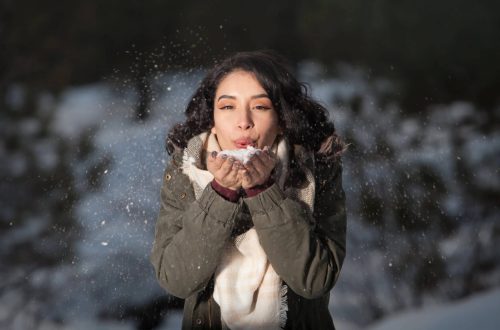Winter Hair Care: A Comprehensive Guide to Controlling Hair Fall
As the winter season sets in, many of us eagerly anticipate cozy sweaters, hot cocoa, and festive celebrations. However, with the drop in temperature, our hair often becomes more prone to dryness, brittleness, and increased hair fall. The cold, dry air, combined with indoor heating, can strip our locks of moisture, leading to a range of winter hair woes. In this comprehensive guide, we will explore effective ways to control hair fall during the winter months, ensuring your mane stays healthy and vibrant.

Understanding Winter Hair Challenges:
1. Dryness and Lack of Moisture:
- Winter air tends to be drier, both outdoors and indoors due to heating systems.
- Lack of moisture can make hair strands brittle and more prone to breakage.
2. Scalp Dryness and Flakiness:
- Cold weather can lead to a dry scalp, causing itchiness and flakiness.
- An unhealthy scalp can contribute to increased hair fall.
3. Temperature Fluctuations:
- Moving between cold outdoor temperatures and warm indoor environments can shock hair strands.
- Sudden temperature changes can weaken hair and make it more susceptible to breakage.
Effective Strategies to Control Hair Fall in Winter:
1. Hydration is Key:
- Internal Hydration: Ensure you stay well-hydrated by drinking an adequate amount of water throughout the day.
- External Hydration: Use a hydrating shampoo and conditioner to replenish moisture in your hair.
2. Avoid Hot Water:
- Hot water can strip the hair and scalp of natural oils, leading to dryness.
- Wash your hair with lukewarm water to prevent excessive dryness and breakage.
3. Moisturize Your Scalp:
- Massage your scalp with natural oils such as coconut oil or olive oil to combat dryness.
- Use a moisturizing hair mask once a week to nourish both your hair and scalp.
4. Gentle Hair Care Routine:
- Be gentle while washing and brushing your hair to avoid unnecessary stress on the strands.
- Use a wide-toothed comb to detangle wet hair, starting from the tips and gradually moving upwards.
5. Protect Your Hair from the Cold:
- Wear a hat or scarf to shield your hair from the harsh winter wind and cold temperatures.
- Avoid exposing your hair to extreme weather conditions whenever possible.
6. Trim Your Hair Regularly:
- Regular trims help prevent split ends, which can lead to breakage.
- Aim for a trim every 6-8 weeks to maintain healthy hair.
7. Choose the Right Products:
- Opt for sulfate-free and moisturizing hair care products to prevent excessive dryness.
- Consider using leave-in conditioners or serums to provide extra nourishment.
8. Balanced Diet:
- Include foods rich in vitamins and minerals, such as fruits, vegetables, and lean proteins, to promote overall hair health.
- Consider taking supplements like biotin or omega-3 fatty acids under professional guidance.
9. Regular Scalp Massage:
- Stimulate blood circulation and promote a healthy scalp by incorporating regular scalp massages into your routine.
- Use your fingertips to gently massage your scalp for a few minutes each day.
10. Humidify Indoor Spaces:
- Use a humidifier to add moisture to the indoor air, preventing your hair from drying out.
- Maintain a comfortable humidity level in your living and sleeping spaces.
11. Reduce Heat Styling:
- Minimize the use of heat styling tools, such as straighteners and curling irons, as they can contribute to dryness and breakage.
- If you must use heat, apply a heat protectant spray to minimize damage.
12. Stay Stress-Free:
- High-stress levels can contribute to hair fall.
- Practice stress-relief techniques such as meditation, yoga, or deep breathing exercises.
Taking proactive steps to control hair fall during the winter months is crucial for maintaining healthy, luscious locks. By adopting a holistic approach that includes hydration, gentle care, and a healthy lifestyle, you can ensure that your hair remains resilient in the face of winter challenges. Implementing these tips into your routine will not only help control hair fall but also leave you with beautiful, vibrant hair throughout the winter season and beyond.





